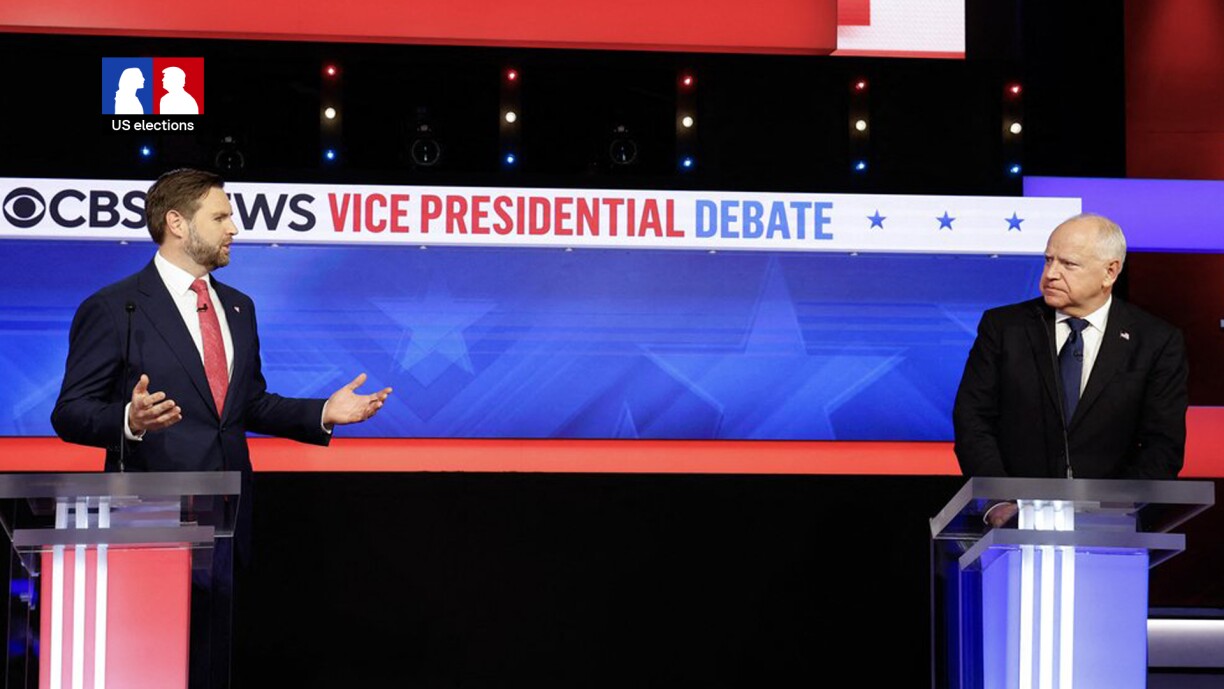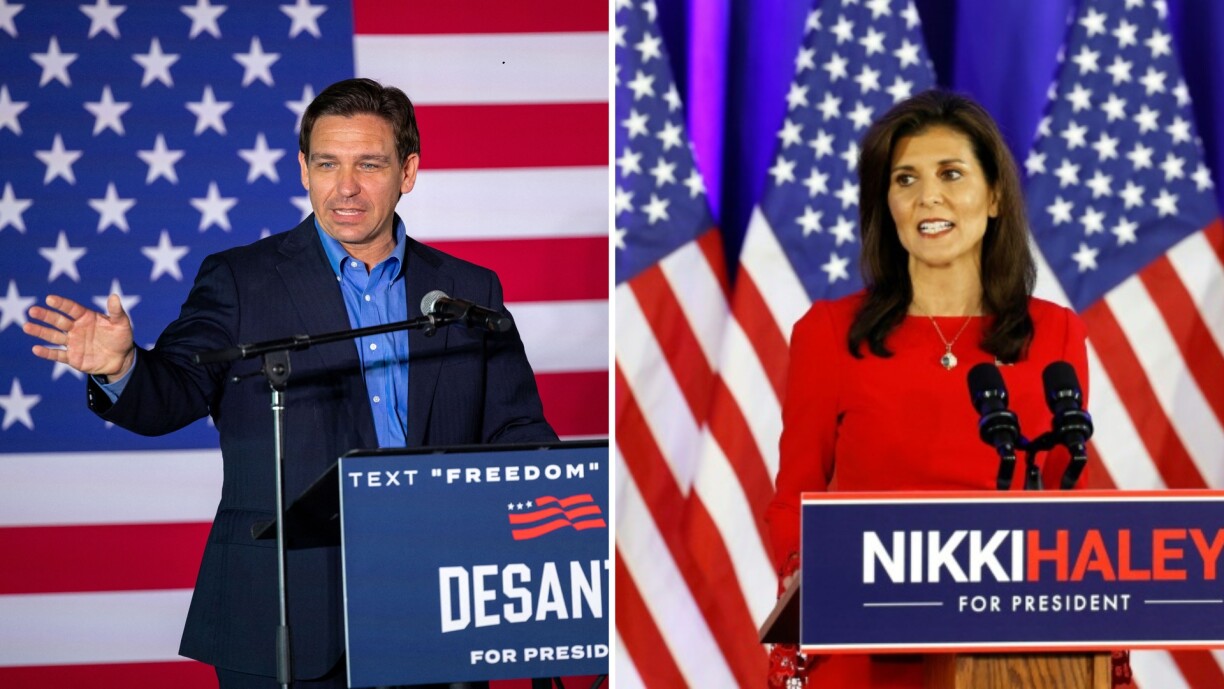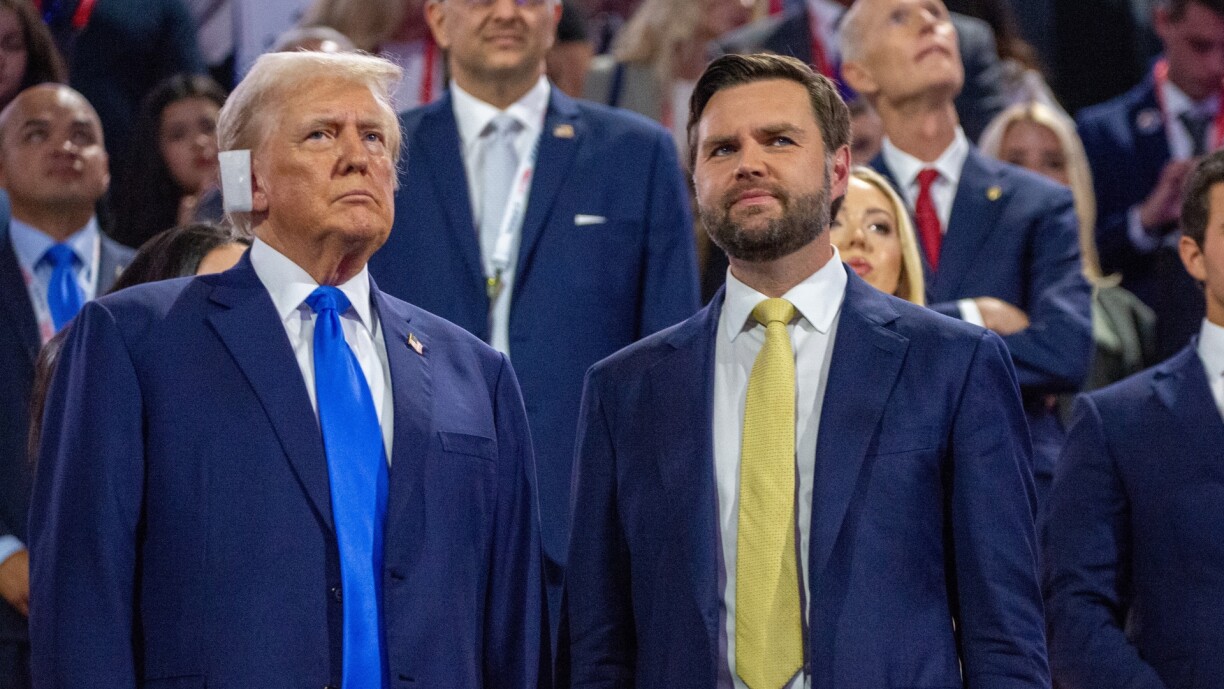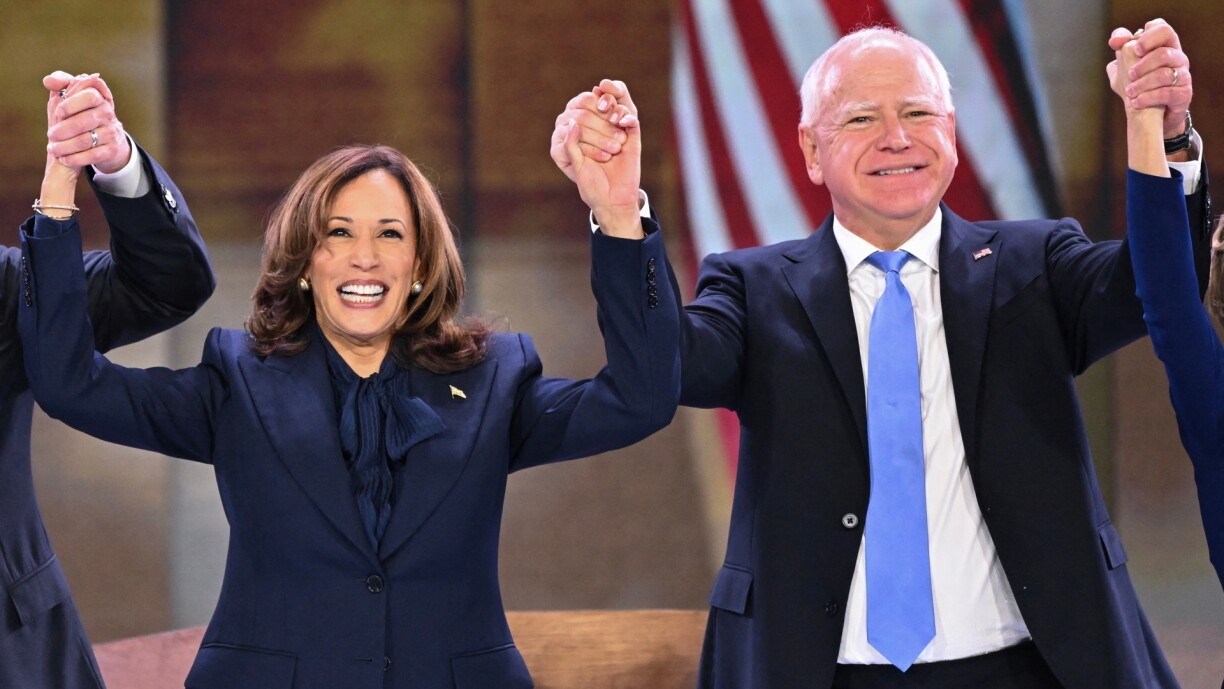
In the fourth instalment of our explainer series, we start zooming in on the 2024 presidential candidates for the two major parties in US politics. With the Democratic and Republican primaries setting the stage, we look back at how the eventual nominees for each party came out on top of a sometimes contentious, yet insightful process. We then explore the events that shaped the final tickets, including what unfolded at both the Republican and Democratic national conventions, as well as the unveiling of the running mates for each presidential ticket.
The primary election process is a preliminary phase where political parties select their candidates for the general election. It typically begins well-ahead of November and involves a series of state-level elections or caucuses, where registered party members – and sometimes independent voters, depending on state rules – vote for their preferred candidate.
Primaries can be either open, allowing any voter to participate regardless of party affiliation, or closed, meaning only registered party members can vote. The goal of this process is to narrow the field of candidates and test their viability on the national stage.
The process parallels that of the Electoral College in the sense that voters choose a slate of delegates pledged to their preferred candidate rather than the actual candidate. The results of these contests therefore determine how many delegates each candidate will send to the party’s national convention, where the candidate is to be formally nominated.
In the context of the 2024 White House race, it has to be noted that only one real primary took place, and even that one turned out to be more of a formality than an actual race.
The 2024 Republican primary for the US presidential election saw a large field of candidates initially challenging former President Donald Trump, who already announced his White House bid at his Mar-a-Lago estate in November 2022. Key contenders included Florida Governor Ron DeSantis, former UN Ambassador Nikki Haley, and entrepreneur Vivek Ramaswamy, among others.
Despite a competitive start, Trump quickly solidified his dominance in the race, consistently leading in national polls. The former president even chose to remain absent from all primary debates, which he publicly labelled irrelevant due to the solidity of his voter base.
DeSantis and Haley gained attention but struggled to close the double-digit gap to Trump. After decisive victories by Trump in early states like Iowa and New Hampshire, most competitors, including DeSantis and Ramaswamy, dropped out and endorsed him. Haley continued her campaign until Super Tuesday, when she suspended her bid after only winning Vermont and Washington DC.
Trump eventually secured the Republican nomination by mid-March 2024, reaffirming his influence within the party despite ongoing legal challenges and controversies.

The Democratic primary was far less eventful. A relatively straightforward path compared to previous cycles, President Joe Biden, after announcing his re-election bid in April 2023, faced minimal opposition within the party. Early challengers like Marianne Williamson and US Representative Dean Phillips struggled to gain significant traction.
Phillips eventually suspended his campaign, and Williamson withdrew before briefly re-entering the race. Robert F. Kennedy Jr, initially vying for the Democratic nomination, dropped out in October 2023 to run as an independent. Biden thus easily secured the nomination by March 2024, winning most primaries by large margins.
This of course all became irrelevant when Biden decided to drop out of the race in July this year. After age-related concerns became overwhelming in the aftermath of the first debate between Biden and Trump, the incumbent gave in to calls for him to step aside.
Vice President Kamala Harris quickly gained substantial support. Biden’s endorsement of Harris as his successor played a crucial role, leading to a wave of endorsements from prominent Democrats like Nancy Pelosi. Harris’ campaign momentum grew as many of Biden’s supporters, party leaders, and key figures began to consolidate around her candidacy, helping her secure her place as the party’s presumptive nominee.
Although the Democratic National Convention still required a formal vote, Harris quickly positioned herself as the clear frontrunner to lead the ticket against Republicans, all while avoiding the perils and pitfalls traditionally associated with the primary process.
At their respective national conventions, the delegates nominate the party’s candidate for president, who will then run in the general election against nominees from other parties.
The 2024 Republican National Convention, or simply RNC, took place from 15–18 July 2024 in Milwaukee, Wisconsin, where the party formally nominated former President Donald Trump as its candidate for the presidency. Trump, after Richard Nixon now the second Republican in history to be nominated for a third presidential campaign, accepted the nomination alongside his vice-presidential running mate, Senator JD Vance of Ohio.
The event, which happened only days after Trump was wounded in a failed assassination attempt, focused on reaffirming the former president’s core campaign themes. These include reversing economic and foreign policy decisions made under the Biden administration, as well as critiques of inflation, crime, and international affairs.
High-profile speakers included Donald Trump Jr, Tucker Carlson, former State Secretary Mike Pompeo, and UFC CEO Dana White. The final night of the RNC centred on the slogan ‘Make America Great Once Again’, with Trump reiterating his commitment to a second term to bring about a “golden age” for the US.
The 2024 Democratic National Convention, or simply DNC, was held in Chicago from 19–22 August and marked a significant moment for the Democratic Party. The convention was primarily focused on nominating Vice President Kamala Harris as the Democratic candidate for president following Biden’s decision to withdraw from the race. Governor Tim Walz of Minnesota was selected as her running mate. At the convention, this ticket was celebrated as the next phase of Democratic leadership, with many praising Biden’s legacy while rallying around Harris’ vision for the future.
The event featured prominent speeches from top Democrats, including Harris, who delivered a rousing acceptance speech on the final night. She addressed key issues such as economic justice, healthcare reform, and climate change, while criticising the potential return of Donald Trump, framing the upcoming election as a battle for the future of democracy all while maintaining an optimistic undertone.
Same as at the RNC, several high-profile celebrities, including Oprah Winfrey, Leonardo DiCaprio, and Billie Eilish, played a prominent role at the DNC. Oprah delivered a stirring speech, emphasising the importance of leadership and unity, while DiCaprio and Eilish focused on climate action and youth involvement.
Time to have a closer look at the running mates that both presidential candidates chose for their 2024 White House bid.
JD Vance, a US senator from Ohio, first rose to national prominence with his memoir Hillbilly Elegy, which depicted the struggles of the white working class in Appalachia and was later turned into a film. Initially a staunch critic of Donald Trump – at one point even calling him “reprehensible” and an “idiot” – Vance later reversed his stance and became a vocal supporter of Trump, aligning himself with his so-called ‘America First’ movement and agenda.
Vance was officially announced as Trump’s running mate at the RNC in July this year. His selection signals a firm commitment to Trump’s base rather than an attempt to broaden the ticket’s appeal. Vance’s transformation from Trump critic to ally has been a key part of his political journey, with Trump describing him as a “genuine convert” to the ‘MAGA’ (‘Make America Great Again’) cause.
Since the nomination, Vance has received mixed reactions. Supporters praise his defence of conservative values in the more than 100 interviews he has given since making the ticket, while critics see his political transformation as opportunistic, with many Democrats labelling him an extremist on issues like abortion and foreign policy.

Minnesota Governor Tim Walz, who secured the nomination as Kamala Harris’ running mate, is a former high school teacher, National Guard veteran, and congressman who has built a reputation for enacting progressive policies in Minnesota, such as protecting abortion rights, legalising recreational marijuana, and expanding paid family leave. His experience as a Midwestern governor is seen as a strategic choice to help Harris win key battleground states like Michigan, Wisconsin, and Pennsylvania.
Walz was chosen from a shortlist of potential candidates that included other prominent Democrats like Josh Shapiro. Walz’ appeal lies in his ability to connect with rural voters and his record of bipartisan work during his first term as governor. Harris praised Walz for his dedication to middle-class families and hopes his Midwest connections will add strength to the Democratic ticket.
Since his nomination, Walz has been received positively within Democratic circles, particularly for his sharp critiques of Republican policies, which he branded as “weird”, a message that quickly resonated online. However, he also faces criticism from Republicans over his handling of the George Floyd protests and the COVID-19 pandemic, as well as his lack of interviews and a number of factually incorrect statements about his past.
